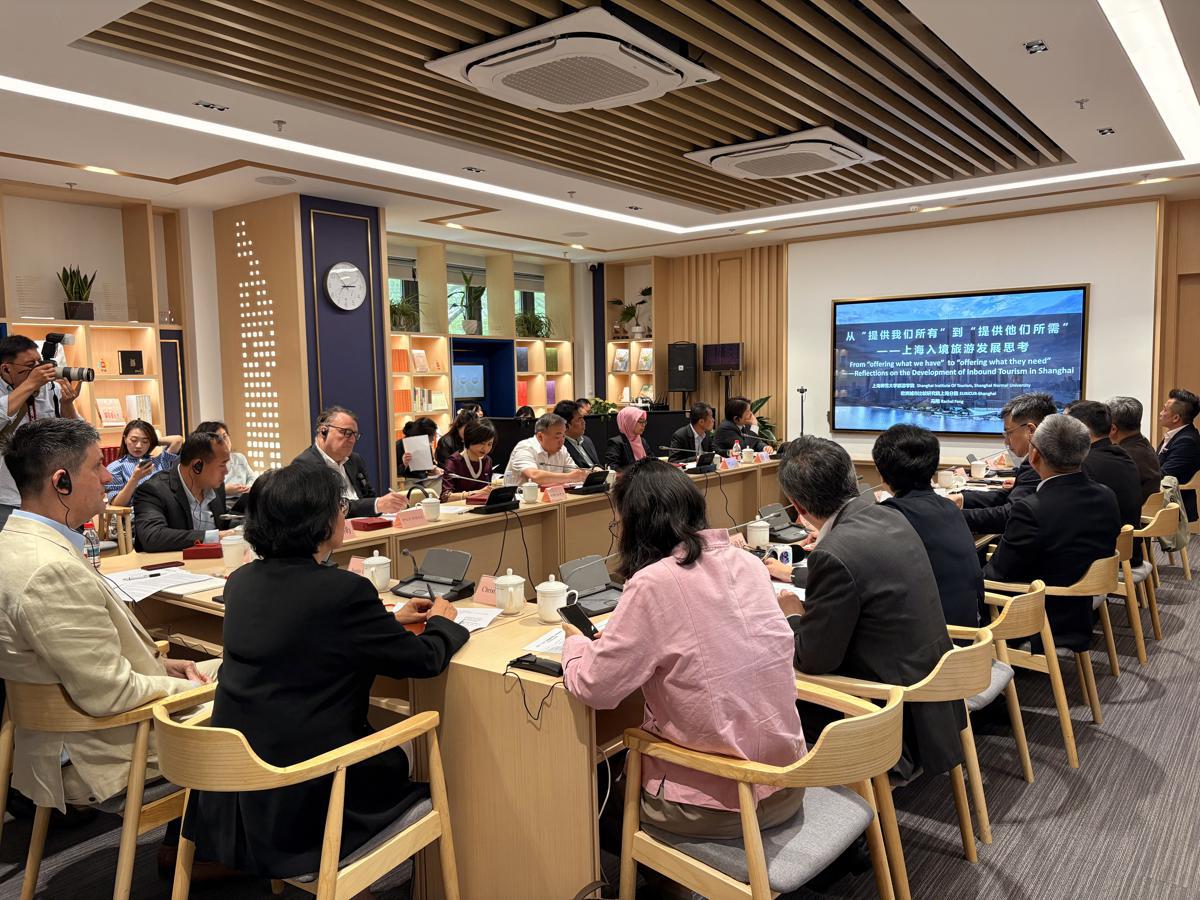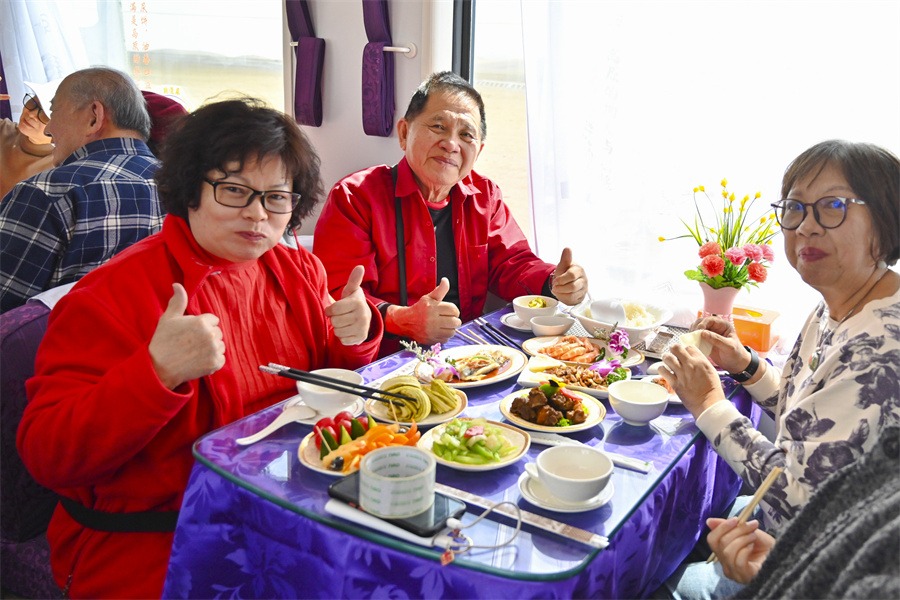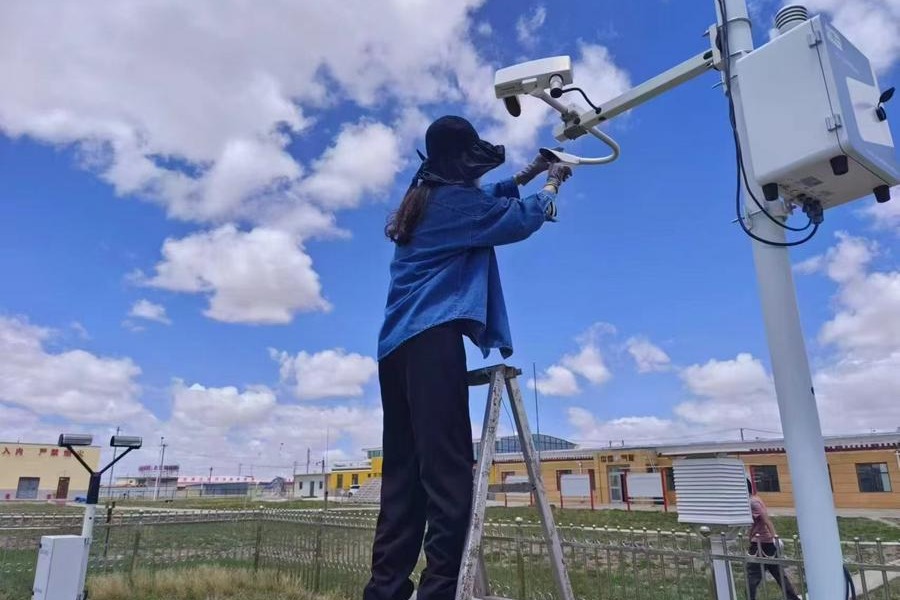Shanghai invites expats' tourism input
Tourism: Tailored travel routes recommended


Shanghai should create unique, unforgettable travel memories for inbound travelers, such as touring historical buildings, learning about traditional Chinese medicine with hands-on experience, and watching a Broadway-style musical, said expat residents who have lived in the city for years.
They also recommended that the city further improve payment convenience, smooth online booking of attractions for expat tourists, and add multilingual signs and services.
The suggestions for enhancing Shanghai's appeal came as the city increases its efforts to build itself into a premier destination for high-level inbound tourism.
In an attempt to promote whole-process people's democracy, the Chinese People's Political Consultative Conference's Shanghai Committee recently held a symposium for foreigners regarding the formulation of the city's 15th Five-Year Plan (2026-30).
In addition, nine consular officers and five longtime expats in Shanghai were invited to provide insights last month on the development of inbound tourism in Shanghai. They represented countries including Japan, South Korea and the United States, as well as some in Southeast Asia.
According to Cheng Meihong, deputy head of the Shanghai Administration of Culture and Tourism, Shanghai recorded 6.7 million inbound tourist visits in 2024, an 84 percent year-on-year increase. In the first quarter of this year, the city received 1.7 million inbound tourist visits, up 37 percent year-on-year.
For years, Japan, the US and South Korea were Shanghai's top three source countries for inbound tourism. However, since the beginning of this year, South Korea, Japan and Thailand have ranked as the city's top three source countries, said Cheng.
"Malaysia and Indonesia are also seeing rapid growth in tourist number to Shanghai. Exchanges between China and neighboring countries are becoming increasingly active," she said.
The expats said Shanghai should offer tailored tourism routes incorporating the city's literary and artistic stories, guided tours of historical buildings led by local architecture students, and a deeper exploration of university tourism resources to attract global visitors, especially young talent.
"Moreover, Shanghai's street food is quite popular among foreign tourists. I suggest providing more insights into the historical background of these culinary delights," said Christie Ho, who is from the US and is former strategic communication partner of a division of the Belgian company Bekaert.
"Also, Shanghai is capable of creating one or two local-style performances like Broadway musicals to serve as a lasting attraction for both local and international visitors," she said.
While English-language signs are widespread in Shanghai, Wonsook Hong, who is from South Korea and is a distinguished expert at Shanghai Hechuan-Rhine TCM Hospital and a visiting professor at Shanghai University of Traditional Chinese Medicine, highlighted the importance of improving multilingual service guidance for non-English speakers.
Furthermore, in terms of payment convenience, although Shanghai provides 90,000 point-of-service terminals that accept foreign bank cards, there are still calls for more widespread acceptance of point-of-sale payments in restaurants and other places.
Takase Aoyama, vice-consul of the Japanese consulate general in Shanghai, said that "overseas visitors' challenges in registration for Alipay and WeChat and binding credit cards for payment still exist. We hope that the registration process for foreign tourists can be streamlined for smoother usage."
He also suggested allowing on-site ticket purchases at attractions, in addition to reserved visits, and enabling passport registration for online reservations, rather than requiring ID-only registration.
The increasing popularity of Shanghai as well as China overall in inbound tourism is closely linked to the expansion of visa-free policies. Justin O'Jack, chief representative of the China Office of the University of Virginia in the United States, said he hopes that the transit visa-free duration can be extended, so that he can take students to have more in-depth experiences in the country.
Berlianto Situngkir, consul general of the Indonesian consulate general in Shanghai, said he hopes that Indonesia and China will further promote visa-free policies to facilitate travel for both sides.
Several of the expats stressed the importance of promoting Shanghai on widely used digital platforms and social media channels to enhance its global visibility.
Notable progress has been observed in this regard, with over 200 Shanghai products now available on the destination travel platform GetYourGuide, showcasing a diverse range of experiences, including cycling tours and popular Shanghai breakfast options.
"Shanghai's ongoing efforts to position itself as a premier gateway for inbound tourism are transitioning from showcasing what the city has, to understanding and meeting the desires of international visitors these days," said Feng Xiang, a researcher at the Shanghai Institute for Global City and director of Shanghai Normal University's Cultural and Tourism Innovation Development Research Center.
zhouwenting@chinadaily.com.cn
- 5.7-magnitude quake hits Taiwan: CENC
- 5 trapped in Yunnan tailings dam collapse, rescue underway
- Body of missing passenger in Guizhou tourist boat incident found
- Humble sweet potatoes revamp life in Guizhou
- Local leader empowers remote mountain village
- Party chief's innovation overhauls rural community





































